

The importance of a good Seating Plan by @ClassCharts. Where a student sits, and who they sit with, has a huge impact on learning.
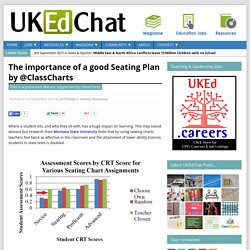
This may sound obvious but research from Montana State University finds that by using seating charts teachers feel twice as effective in the classroom and the attainment of lower ability (novice) students in state tests is doubled. For UK schools this means that the attainment of those key “below C” students can be increased by using seating plans in lessons. One innovative seating plan solution is Class Charts which was developed by a teacher with 16 years of experience in the classroom.
» Creating a positive learning environment. When I first started out teaching over 10 years ago, I was determined to be the best teacher I could possibly be.
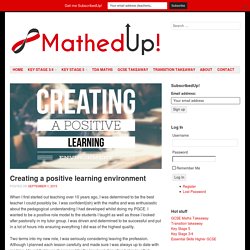
I was confident(ish) with the maths and was enthusiastic about the pedagogical understanding I had developed whilst doing my PGCE. I wanted to be a positive role model to the students I taught as well as those I looked after pastorally in my tutor group. I was driven and determined to be successful and put in a lot of hours into ensuring everything I did was of the highest quality. Resourceaholic: MEI Conference 2015.
Last week was an incredibly busy week for me.
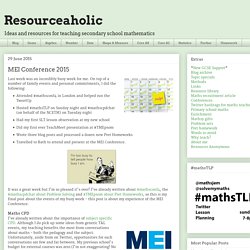
20 psychological principles for teachers #17 Classroom management. It’s an oft-repeated truism that nobody rises to low expectations.
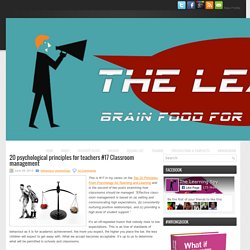
This is as true of standards of behaviour as it is for academic achievement; the more you expect, the higher you place the bar, the less children will expect to get away with. What we accept becomes acceptable. Why is it that students always seem to understand, but then never remember? Preamble I’ve had a week to think about what direction I’d like to take with this blog, and what questions or issues it should take on.

Do I focus just on mathematics? Teaching for keeps: What Works & Why? 30 Ideas by @powley_r. Dropbox - marking strategies. 10 facts about learning that are scientifically proven and interesting for teachers. Ten easy ways to demonstrate progress in a lesson. Where the Laws No Longer Hold. Third in a finite series on infinity (see posts 1 and 2) Somehow, I suspect I wouldn’t survive long on the frontier.
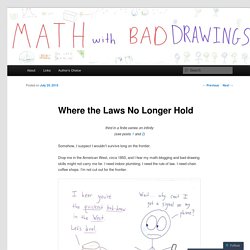
Drop me in the American West, circa 1850, and I fear my math-blogging and bad-drawing skills might not carry me far. I need indoor plumbing. I need the rule of law. Taking Back The F-Word. My pet peeve these days is that everyone assumes that when describing lessons, the word “fun” implies a crappy lesson lacking depth that involves running around, searching for things, spinning endlessly on the spot or solving a murder mystery.

It shouldn’t! It never did before those silly ideas! I’m taking back the F-Word. My lessons are fun. David Didau: The Learning Spy. We all want progress, but if you’re on the wrong road, progress means doing an about-turn and walking back to the right road; in that case, the man who turns back soonest is the most progressive.C.

Plenary Prefects. Twitter really is a marvellous place.
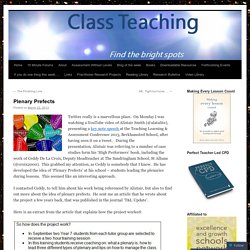
On Monday I was watching a YouTube video of Alistair Smith (@alatalite), presenting a key note speech at the Teaching Learning & Assessment Conference 2013, Berkhamsted School, after having seen it on a tweet. During the presentation, Alistair was referring to a number of case studies form his ‘High Performers’ book, including the work of Ceddy De La Croix, Deputy Headteacher at The Sandringham School, St Albans (@croix2000). This grabbed my attention, as Ceddy is somebody that I know. He has developed the idea of ‘Plenary Prefects’ at his school – students leading the plenaries during lessons. This seemed like an interesting approach.
UKEdChat - Supporting the Education Community. When it comes to adolescents with maths and science homework, more isn’t necessarily better — an hour a day is optimal — but doing it alone and regularly produces the biggest knowledge gain, according to research published by the American Psychological Association.

Image via r. nial bradshaw Researchers from the University of Oviedo in Spain looked at the performance of 7,725 public, state-subsidized and private school students in the principality of Asturias in northern Spain. The students had a mean age of 13.78. Girls made up 47.2 percent of the sample. A Math Teacher’s Guide to Explaining Technology to Your Parents. This is my second century. I was 13 when it began—young enough to be almost fluent, but old enough that my technological skills retain a quaint 20th-century accent. (For example, I still use email.) My parents’ generation, on the other hand, didn’t encounter the 21st century until they were full-grown adults. They’d settled into their habits when this digital tide began rising around them: Facebook, Twitter, viral videos, actual computer viruses, Android, Snapchat, gifs, Reddit… And so was born that tragicomedy of 21st-century life: young people trying to explain technology to their parents.
“This is so easy. » Pokemon maths challenges. Here is a quick share of an A-Level revision idea that a colleague () and I developed last year. It is similar to the flipped revision idea I shared last week but has a specific theme. Pokemon. Just to be clear, I had no idea when it came to Pokemon, but have been told that they are pocket monsters that humans (trainers) train to fight each other. The idea is in order for the trainers to progress, they need to become eligible of fighting one of the more powerful trainers known as ‘gym leaders’. Why teaching A-level is the best preparation for teaching A-level.
I thought I understood A-level Maths until I started teaching it. As @magicalmaths tweeted the other day, we learn some of what we see or read and rather more of what we discuss or experience for ourselves, but none of it compares to how well we learn by teaching others. UKEdChat - Supporting the Education Community. Here are four ideas for using formative assessment in your lessons. EBL.pdf. Solve My Maths. America Will Run Out Of Good Questions By 2050. What if you marked every book, every lesson? ‘God save thee, ancient Mariner! - Expectations 1 - JustMaths. David Didau: The Learning Spy.